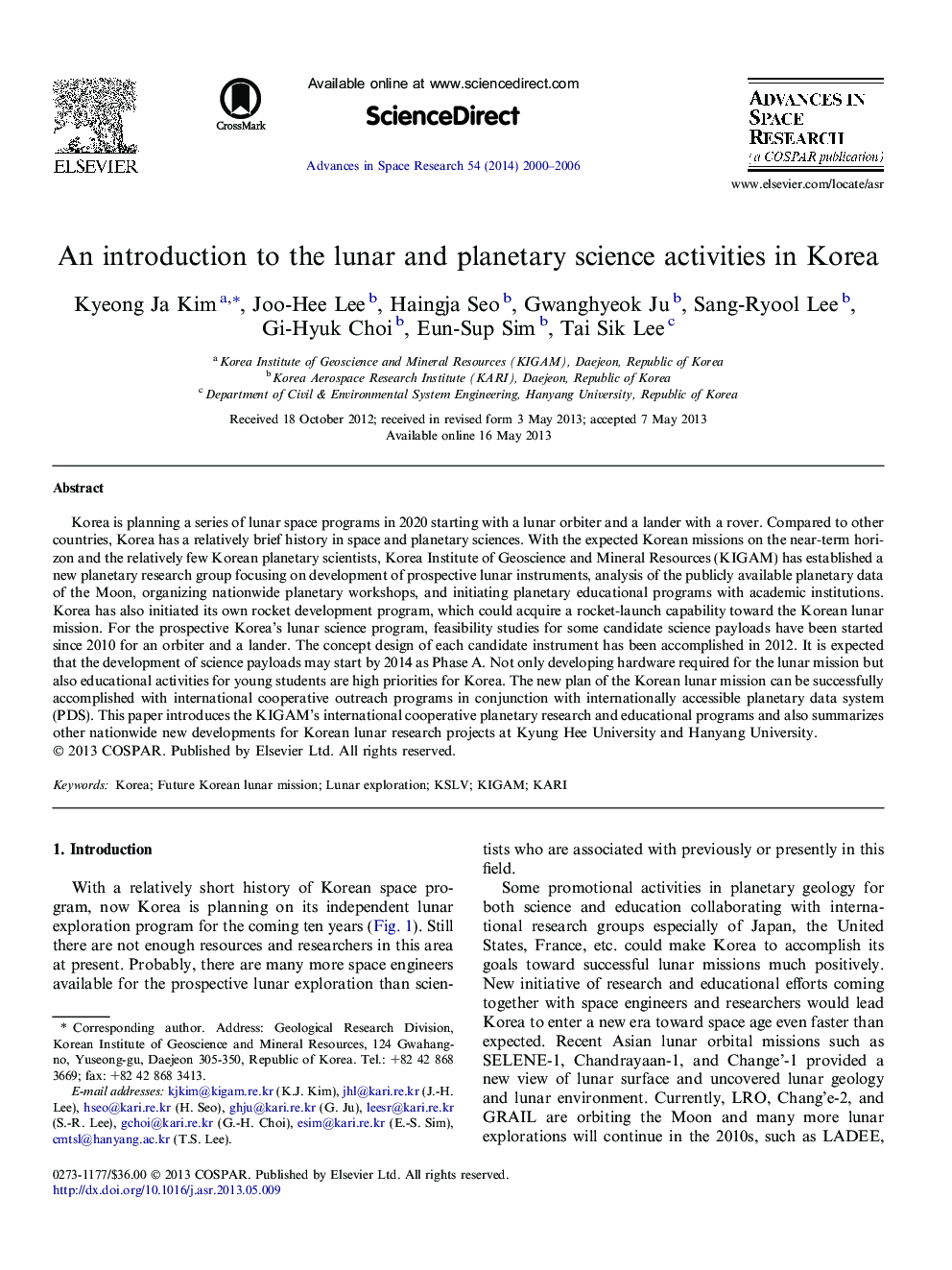| Article ID | Journal | Published Year | Pages | File Type |
|---|---|---|---|---|
| 1764484 | Advances in Space Research | 2006 | 7 Pages |
Korea is planning a series of lunar space programs in 2020 starting with a lunar orbiter and a lander with a rover. Compared to other countries, Korea has a relatively brief history in space and planetary sciences. With the expected Korean missions on the near-term horizon and the relatively few Korean planetary scientists, Korea Institute of Geoscience and Mineral Resources (KIGAM) has established a new planetary research group focusing on development of prospective lunar instruments, analysis of the publicly available planetary data of the Moon, organizing nationwide planetary workshops, and initiating planetary educational programs with academic institutions. Korea has also initiated its own rocket development program, which could acquire a rocket-launch capability toward the Korean lunar mission. For the prospective Korea’s lunar science program, feasibility studies for some candidate science payloads have been started since 2010 for an orbiter and a lander. The concept design of each candidate instrument has been accomplished in 2012. It is expected that the development of science payloads may start by 2014 as Phase A. Not only developing hardware required for the lunar mission but also educational activities for young students are high priorities for Korea. The new plan of the Korean lunar mission can be successfully accomplished with international cooperative outreach programs in conjunction with internationally accessible planetary data system (PDS). This paper introduces the KIGAM’s international cooperative planetary research and educational programs and also summarizes other nationwide new developments for Korean lunar research projects at Kyung Hee University and Hanyang University.
